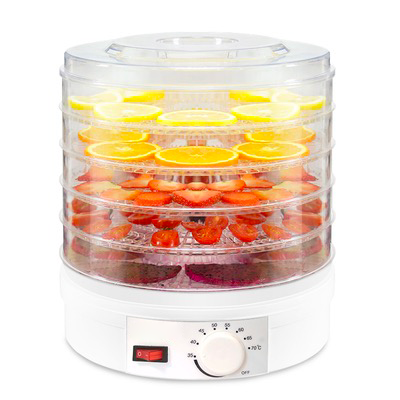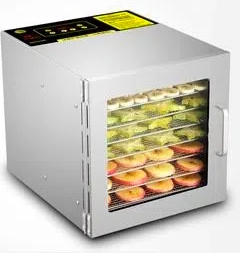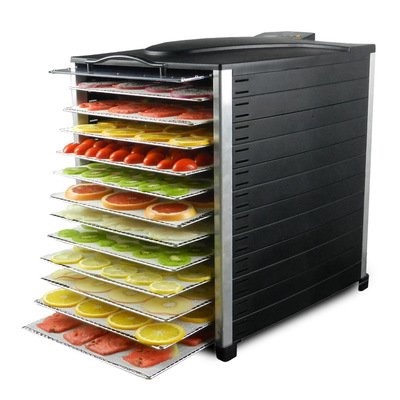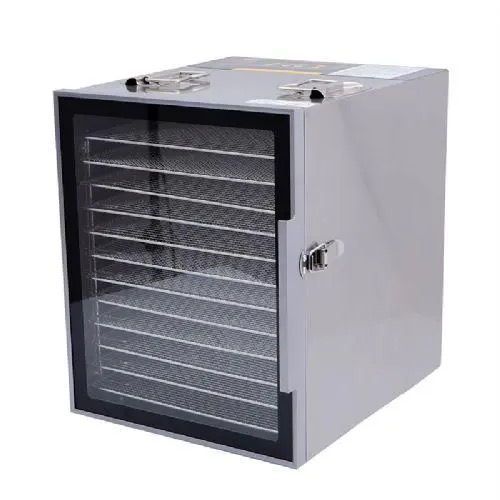
Content Menu
● Understanding Heat Pump Dryers
● Advantages of 120 Volt Heat Pump Dryers
● How Heat Pump Dryers Work
● Comparing to Traditional Dryers
● The Future of Food Drying Technology
● Conclusion
● Frequently Asked Questions
>> 1. What is the main advantage of using a heat pump dryer for food?
>> 2. Can heat pump dryers be used for all types of food?
>> 3. How long does it take to dry food in a heat pump dryer?
>> 4. Are heat pump dryers environmentally friendly?
>> 5. What should I consider when purchasing a heat pump dryer?
In the world of food processing, drying is a crucial step that significantly affects the quality, shelf life, and flavor of food products. As a manufacturer of food drying machines in China, we understand the importance of efficient drying technology. One of the innovations in this field is the heat pump dryer, particularly the 120 volt models. This article will explore how 120 volt heat pump dryers compare to traditional dryers, focusing on their advantages, operational mechanisms, and applications in the food industry.

Understanding Heat Pump Dryers
Heat pump dryers utilize a refrigeration cycle to remove moisture from food products. Unlike traditional dryers that rely on direct heat sources, heat pump dryers operate by transferring heat from the environment to the drying chamber. This method is not only energy-efficient but also allows for precise temperature control, which is essential for preserving the nutritional value and flavor of food.
Advantages of 120 Volt Heat Pump Dryers
1. Energy Efficiency: One of the most significant advantages of heat pump dryers is their energy efficiency. They consume less electricity compared to traditional dryers, making them an economical choice for food manufacturers. The 120 volt models are particularly suitable for smaller operations or facilities with limited power supply.
2. Gentle Drying Process: Heat pump dryers operate at lower temperatures, which helps in preserving the quality of sensitive food items. This gentle drying process minimizes the risk of nutrient loss and maintains the food's natural color and flavor.
3. Versatility: These dryers can handle a wide range of food products, from fruits and vegetables to meats and herbs. Their adjustable settings allow users to customize the drying process according to the specific requirements of different foods.
4. Reduced Environmental Impact: By using less energy and producing less waste heat, heat pump dryers are more environmentally friendly than traditional dryers. This aspect is increasingly important for businesses looking to reduce their carbon footprint.
5. Compact Design: The 120 volt heat pump dryers are often designed to be compact, making them ideal for facilities with limited space. Their smaller footprint does not compromise their drying capabilities, allowing for efficient use of available space.
How Heat Pump Dryers Work
Heat pump dryers operate using a closed-loop system that involves several key components: the evaporator, compressor, condenser, and expansion valve.
1. Evaporator: The process begins in the evaporator, where moisture from the food is absorbed. The evaporator cools down, causing moisture to evaporate from the food and condense into vapor.
2. Compressor: The vapor is then compressed, which increases its temperature and pressure. This step is crucial as it prepares the vapor for the next stage of the cycle.
3. Condenser: The hot vapor moves to the condenser, where it releases heat to the drying chamber, warming the air that circulates around the food. This heat helps to continue the drying process.
4. Expansion Valve: Finally, the cooled vapor passes through the expansion valve, where its pressure drops, and the cycle begins anew.Applications in the Food Industry
Heat pump dryers are increasingly being adopted in various sectors of the food industry. Here are some common applications:
1. Fruit and Vegetable Drying: Heat pump dryers are ideal for drying fruits and vegetables, preserving their taste and nutritional value. Products like apples, bananas, and tomatoes can be dried effectively without losing their essential qualities.
2. Herb Drying: For the herb industry, maintaining flavor and aroma is crucial. Heat pump dryers provide a controlled environment that helps retain the volatile compounds in herbs, resulting in high-quality dried products.
3. Meat Drying: In the production of jerky and other dried meat products, heat pump dryers ensure that the meat is dried evenly and safely, reducing the risk of spoilage.
4. Snack Production: Many snack foods, such as dried fruits and vegetable chips, benefit from the gentle drying process of heat pump dryers, which enhances their flavor and texture.

Comparing to Traditional Dryers
When comparing 120 volt heat pump dryers to traditional dryers, several factors come into play:
1. Energy Consumption: Traditional dryers often use direct heat sources, which can lead to higher energy consumption. In contrast, heat pump dryers recycle heat, making them more energy-efficient.
2. Temperature Control: Traditional dryers may operate at higher temperatures, which can lead to nutrient loss and changes in flavor. Heat pump dryers, with their lower operating temperatures, help preserve the integrity of the food.
3. Drying Time: While traditional dryers may dry food faster due to higher temperatures, the quality of the dried product may suffer. Heat pump dryers take longer but produce superior results.
4. Cost: The initial investment for heat pump dryers may be higher, but the long-term savings on energy bills and the quality of the dried products can make them a more cost-effective choice in the long run.
The Future of Food Drying Technology
As the food industry continues to evolve, the demand for efficient and sustainable drying solutions is on the rise. Heat pump dryers are at the forefront of this trend, offering innovative solutions that meet the needs of modern food processing. With advancements in technology, we can expect to see even more improvements in energy efficiency, drying speed, and product quality.
Moreover, as consumers become more health-conscious and environmentally aware, the preference for dried foods that retain their nutritional value will drive the adoption of heat pump dryers. Manufacturers who invest in this technology will not only enhance their product offerings but also align with the growing demand for sustainable practices in food production.
Conclusion
In conclusion, 120 volt heat pump dryers represent a significant advancement in food drying technology. Their energy efficiency, gentle drying process, and versatility make them an excellent choice for food manufacturers looking to produce high-quality dried products. As the demand for healthier and more sustainable food options continues to grow, heat pump dryers are poised to play a vital role in the food processing industry.

Frequently Asked Questions
1. What is the main advantage of using a heat pump dryer for food?
The main advantage is energy efficiency, along with the ability to preserve the quality and nutritional value of food due to lower drying temperatures.
2. Can heat pump dryers be used for all types of food?
Yes, heat pump dryers are versatile and can be used for a wide range of food products, including fruits, vegetables, herbs, and meats.
3. How long does it take to dry food in a heat pump dryer?
Drying times vary depending on the type of food and its moisture content, but generally, heat pump dryers take longer than traditional dryers due to their lower temperatures.
4. Are heat pump dryers environmentally friendly?
Yes, they are more environmentally friendly than traditional dryers as they consume less energy and produce less waste heat.
5. What should I consider when purchasing a heat pump dryer?
Consider factors such as energy efficiency, capacity, drying time, and the specific types of food you plan to dry.












